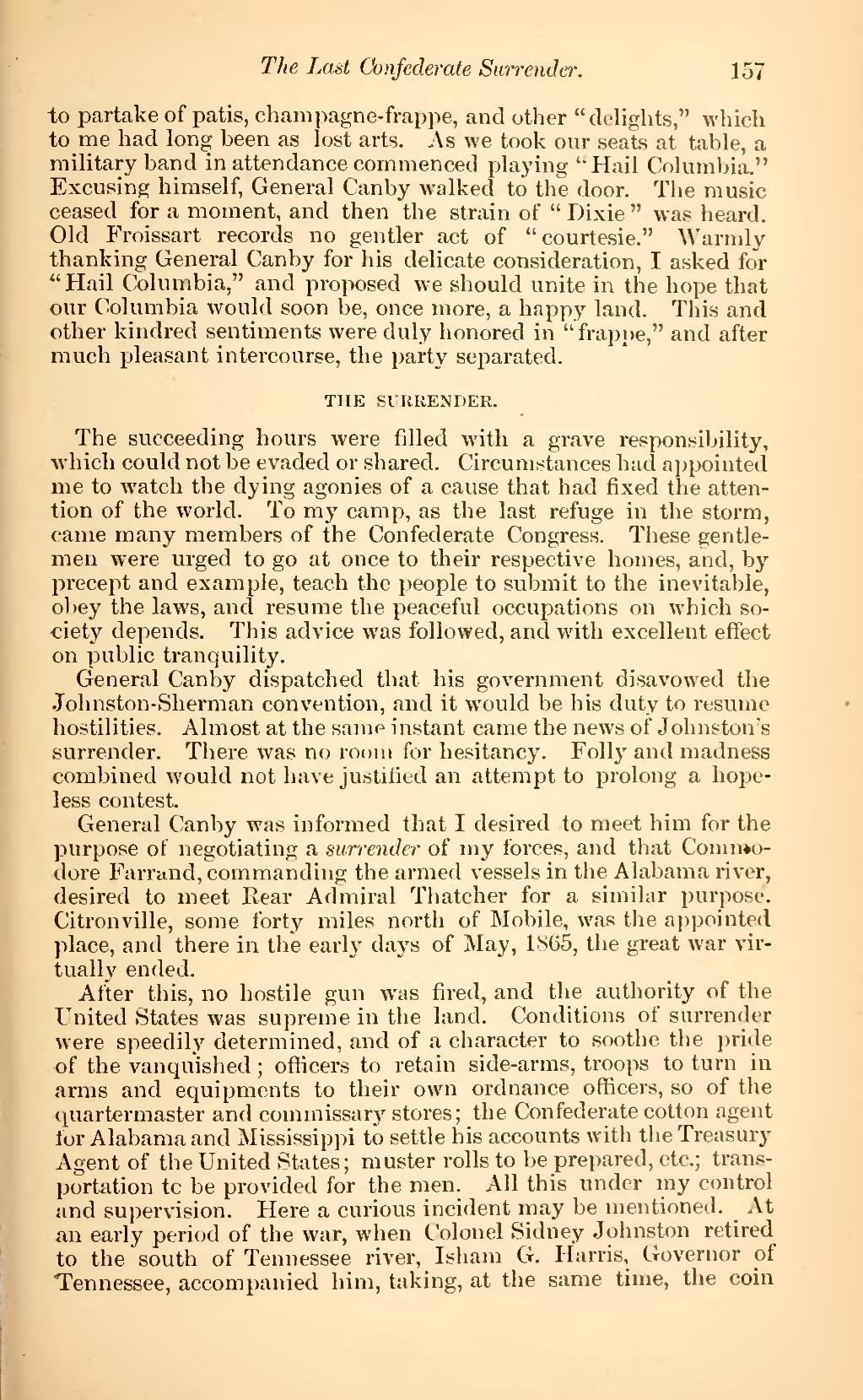to partake of patis, champagne-frappe, and other "delights," which to me had long been as lost arts. As we took our seats at table, a military band in attendance commenced playing "Hail Columbia." Excusing himself, General Canby walked to the door. The music ceased for a moment, and then the strain of "Dixie" was heard. Old Froissart records no gentler act of "courtesie." Warmly thanking General Canby for his delicate consideration, I asked for "Hail Columbia," and proposed we should unite in the hope that our Columbia would soon be, once more, a happy land. This and other kindred sentiments were duly honored in "frappe," and after much pleasant intercourse, the party separated.
THE SURRENDER.
The succeeding hours were filled with a grave responsibility, which could not be evaded or shared. Circumstances had appointed me to watch the dying agonies of a cause that had fixed the attention of the world. To my camp, as the last refuge in the storm, came many members of the Confederate Congress. These gentlemen were urged to go at once to their respective homes, and, by precept and example, teach the people to submit to the inevitable, obey the laws, and resume the peaceful occupations on which society depends. This advice was followed, and with excellent effect on public tranquility.
General Canby dispatched that his government disavowed the Johnston-Sherman convention, and it would be his duty to resume hostilities. Almost at the same instant came the news of Johnston's surrender. There was no room for hesitancy. Folly and madness combined would not have justified an attempt to prolong a hopeless contest.
General Canby was informed that I desired to meet him for the purpose of negotiating a surrender of my forces, and that Commodore Farrand, commanding the armed vessels in the Alabama river, desired to meet Rear Admiral Thatcher for a similar purpose. Citronville, some forty miles north of Mobile, was the appointed place, and there in the early days of May, 1865, the great war virtually ended.
After this, no hostile gun was fired, and the authority of the United States was supreme in the land. Conditions of surrender were speedily determined, and of a character to soothe the pride of the vanquished; officers to retain side-arms, troops to turn in arms and equipments to their own ordnance officers, so of the quartermaster and commissary stores; the Confederate cotton agent for Alabama and Mississippi to settle his accounts with the Treasury Agent of the United States; muster rolls to be prepared, etc.; transportation to be provided for the men. All this under my control and supervision. Here a curious incident may be mentioned. At an early period of the war, when Colonel Sidney Johnston retired to the south of Tennessee river, Isham G. Harris, Governor of Tennessee, accompanied him, taking, at the same time, the coin
